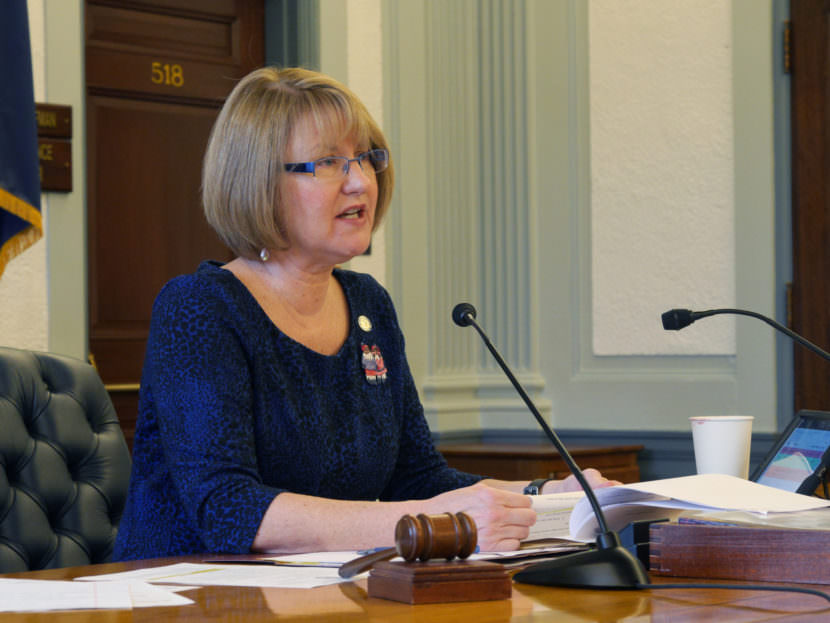
The state’s budget problem is shrinking, but it may not be enough to resolve differences between the Senate and House.
Higher oil prices have cut the projected gap between what the state government spends and what it raises.
Senate Finance Committee co-chairwoman Anna MacKinnon said the state has time to close its budget gap if it passes Senate Bill 26 this year. The measure draws money from Permanent Fund earnings to pay for state government, and limits Permanent Fund dividends.
“It is short-sighted to be thinking about an income tax at this point in time,” MacKinnon said.
The Senate’s bill would leave an annual gap of $394 million in nine years, according to a forecasting model used by the nonpartisan Legislative Finance Division.
The gap is about $200 million less than it was before state officials updated their forecast last week.
The Senate majority proposes to close the rest of the gap by cutting spending, while the House majority would reintroduce an income tax and raise oil and gas taxes. The original Senate Bill 26 sets Permanent Fund dividends at $1,000. The House version would set dividends $250 higher.
House Finance Committee co-chairman Paul Seaton said that even with the improved forecast, the Legislature must pass an income tax to have a balanced budget in the long term.
He said it would leave the state with capital budgets that are too low. And it would leave residents with PFDs that are unnecessarily low.
“If you don’t have an adequate capital budget, and you’re limiting the dividend to the lowest amount that anyone has proposed, then you’re not getting much input into the economy to bring us out of recession,” Seaton said.
The House Finance Committee plans to compare the House and Senate plans next week, while the Senate Finance Committee is scheduled to discuss a bill to revise oil and gas tax credits.
The Legislature is 12 days past the scheduled end to the session. The session has 19 days before it must end under the state constitution.
